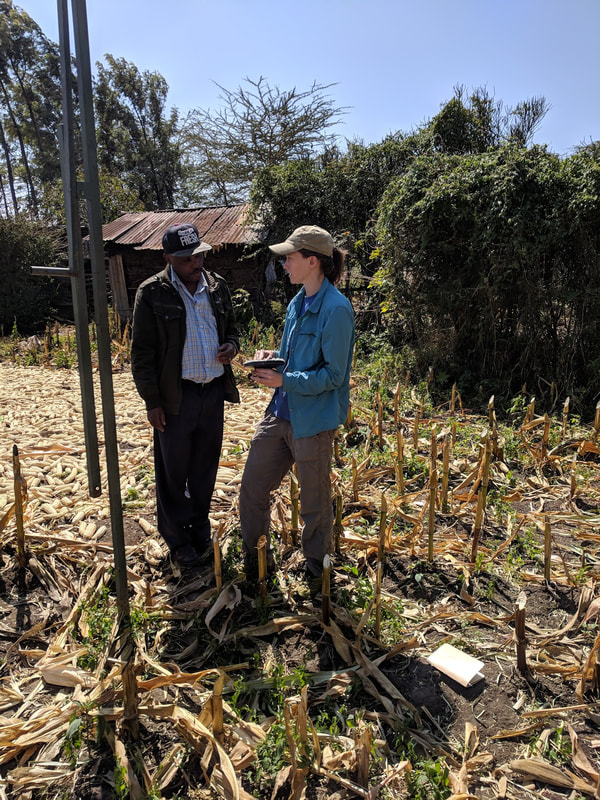I will be honest—I am still figuring what exactly ecohydrology means to me. In general ecohydrology is understanding the bi-directional interactions between water and biotic landscapes across several spatial and temporal scales. One aspect that I love about ecohydrology is that the definition is somewhat up to personal interpretation and in flux (no pun intended!) Personally, I’m drawn to how humans alter ecohydrologic processes as well as how stochastic processes shape the natural world in the broadest sense.
What are your undergraduate and graduate degrees in?
My B.A. is in human ecology from the College of the Atlantic in Bar Harbor, Maine. Similar to ecohydrology, several definitions of human ecology exist. Human ecology can be thought of as understanding human interactions with various “worlds”, whether that be natural, social, cultural, political, metaphysical, etc. as well as the interactions between those worlds.
I’m currently working on my PhD in geography at U.C. Santa Barbara. I study smallholder farmer decision-making and climate variability in dryland environments, specifically in Eastern and Southern Africa, as well as how farmers can limit resource input and environmental degradation through precision agriculture.
How did you arrive at working in/thinking about ecohydrology?
I was fortunate to work with Dr. Shirley Papuga as an undergraduate intern during a NSF REU at The University of Arizona. I spent many early mornings at the Santa Rita Experimental Range conducting fieldwork on plant phenology using flux tower measurements and ‘phenocams’ as well as assisting a graduate student’s research on leaf isotope hydrology. These experiences helped me realize that I could turn my interest in plant-atmosphere interactions in semiarid environments to graduate research in water-scarcity prone tropics. Since that internship, my research focus has shifted to understanding problems with rainfed agriculture in areas characterized not only by intra-seasonal dry spells and low cumulative volumes of rainfall, but also significant social and cultural barriers to the large increases in yield needed to feed growing populations.
What do you see as an important emerging area of ecohydrology?
The social aspects of ecohydrology are interesting to me and are becoming increasingly important as we figure out how to feed more than 7 billion people on the planet. Humans have been changing landscapes in profound ways and ecohydrologists have a skillset and set of research interests that will continued to be leveraged for new discoveries and policy formation.
Do you have a favorite ecohydrology paper? Describe/explain.
I love Gonzales & Ajami’s (2017) WRR paper on the Social and Structure Patterns of Drought-Related Water Conservation and Rebound. I could probably get into a disagreement with some ecohydrologists about whether or not this is an ecohydrology paper, but at the end of the day what’s important are the findings: Water users (at least those in California, but likely in other places too) tend to conserve water when there is heightened awareness around droughts, but then they revert back to previous patterns of water use when public awareness around droughts fades. I love how the data demonstrate a rather intuitive hypothesis, which will hopefully inform behavior and policy around water conservation.
What do you do for fun (apart from ecohydrology)?
I’m an explorer at heart. Whether I’m exploring new parts of my neighborhood to find hidden spots or traveling to new countries and learning languages, I love observing and understanding unfamiliar environments and learning from people. Even landscapes that seem familiar have something yet to be discovered under each unturned stone.

 RSS Feed
RSS Feed